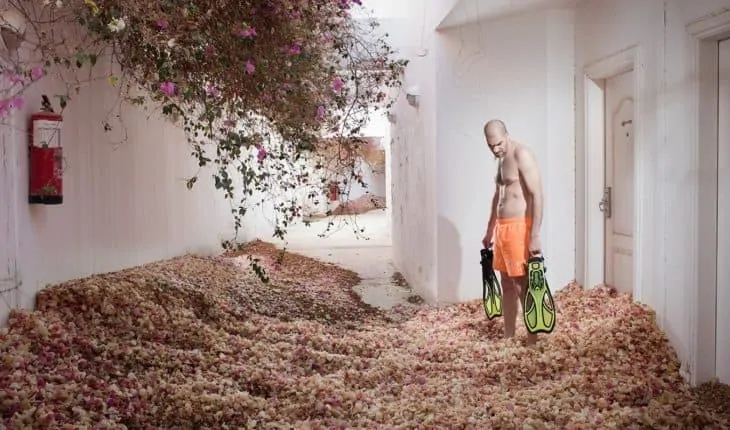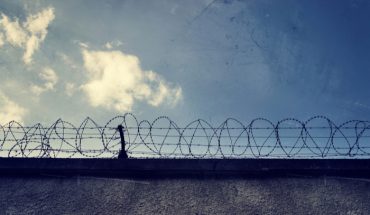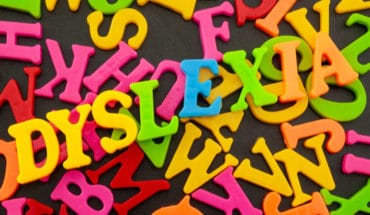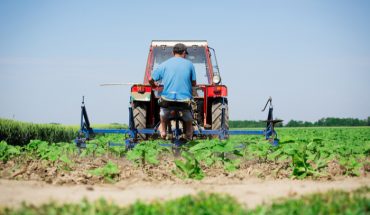Russian artist Arseniy Neskhodimov has won the prestigious Wellcome Photography Prize 2020 for his Prozac series, a unique portrayal of the artist’s own experiences of living with depression. Neskhodimov was selected from a shortlist of 25 photographers from thirteen countries to win the overall prize of £15,000 plus £1,250 for his win in the Mental Health series category.
“My portraits are a kind of therapy that helps me fight off the attacks of despair and loss of meaning, especially in this difficult pandemic time. I’ve been trapped at home out of a job for three months and the only thing that brings some sense into my life is to keep taking pictures,” explains Neskhodimov.
His work often touches on issues of disillusionment and the sense of alienation felt by the generation born in early 1980s. This micro-generation, sometimes referred to as Xennials are described as having had an analogue childhood followed by a digital adulthood. Neskhodimov’s work has been exhibited internationally and he has been recognised by numerous awards, including this year’s Aesthetica Art Prize and the Annual Photo Awards.
Born in 1981 in Samarkand, Uzbekistan, Neskhodimov is now based in Moscow. Prozac explores the photographer’s experience with depression, which he has been prone to since the age of 20, and continues his ongoing conceptual work around visual identity. Finding antidepressants unhelpful, he decided to get out of Moscow and find somewhere he could be happier, chronicling his experiences at his parents’ house and in Sharm El Sheik, but the depression followed him. He now thinks depression has to be understood and treated as an illness, although he isn’t sure how.
Miranda Wolpert, Head of Mental Health Priority Area at Wellcome said, “This incredibly powerful series highlights the complexity of both emotions and coping mechanisms underpinning each person’s journey with their mental health. Neskhodimov’s visually arresting series manages to convey both the ongoing pain he experiences and the strategies to cope – including humour and creativity. More nuanced representations of individual’s experience of mental ill-health and their varied ways of coping help start conversations about what can help and hold back different individuals. Only by considering the interplay between individual context and proffered solutions can scientists discover the next generation of treatments and approaches that will enable fewer people to be held back in life by mental health problems.”
Returning for its second year, the prize tells provocative visual stories about the health challenges of our time, combatting health taboos, bringing complex health issues to life and showing how health affects society. With a special focus in 2020 on mental health, an issue that has become even more urgent due to COVID-19, the prize aims to challenge preconceptions and stereotypes, and provide a more authentic look at peoples’ experiences of mental health.
The expert panel of judges from across photography, medicine, media and science, also chose winners from four other categories from a shortlist of 44 photos taken by 25 professional, amateur and student photographers from 13 countries.
The other category winners, who each receive £1,250, are:
- Cards by Marijn Fidder, Gieten, the Netherlands, 2018 from the Social Perspectives category. The Dutch photographer’s image features 11-year old Sanne, who has a brain tumour, at home in her bedroom.
- Monankim by Jenevieve Aken, Cross River State, Nigeria, 2017 from the Hidden Worlds category. The Nigerian photographer’s picture is of a teenage girl from the Bakor community in a healing room following her circumcision.
- Hadia by Julia Gunther and Sophia Mohammed, Light for the World, Mundri, South Sudan, 2018 from the Medicine in Focus category. The image, from German photographer Gunter, shows community rehabilitation expert Mohammed demonstrating a treatment to the mother of four-month-old Hadia, who was born with spina bifida, hydrocephalus (fluid in the brain) and club foot.
- Holding on to Daddy by Benji Reid, Manchester, UK, 2018 from the Mental Health – single image category. The British Choreo-Photolist’s photograph is a “love note” to his daughter. It shows him as a ‘broken astronaut’ tethered to her, and the simple, comforting fact of her presence keeps him in the real world.
The winners were announced in a digital event, hosted by Dame Cilla Snowball, featuring filmed contributions from the photographers.
The judging panel was chaired by Dr Jeremy Farrar, Director of Wellcome, and comprised of: Siân Davey (photographer), MaryAnne Golon (Washington Post), Dr Aiysha Malik (World Health Organization), John Moe (The Hilarious World of Depression podcast), Dr David Nott (David Nott Foundation), Azu Nwagbogu (African Artists’ Foundation and Lagos Photo Festival).
Dr Jeremy Farrar, Director of Wellcome and Wellcome Photography Prize Chair, said:
“Unfortunately mental health is still in the shadows despite being a subject that we’re all touched by, whether directly or through our friends and family. When subjects stay in the shadows they remain stigmatised, but by bringing them out into the open this power is lost, helping reinforce that it is normal and we can talk about it.”
The Wellcome Photography Prize is a project by Wellcome, an independent charitable foundation supporting research to improve health. Wellcome is one of the world’s biggest funders of mental health research and recently committed an additional £200m to develop a new generation of approaches and treatments for anxiety and depression.
For many years the Wellcome prize focused on clinical and imaging experts, but is now open to anyone whether a photographer, photojournalist, researchers, clinical photographer, or artist. Entrants to the competition will tackle powerful, frequently life-and-death subjects, but their seriousness does not rule out ingenuity and a sense of humour.
Wellcome has long prided itself on providing a platform for clinical and biomedical researchers to showcase the best of scientific imagery, challenging people to think differently about themselves and about their health.
Wellcome Photography Prize 2020 at the Wellcome Collection, 183 Euston Road, Euston, London NW1 2BE; tel. 0207 611 2222
Gallery opening hours Mon- Gallery closed; Tues & Wed 10am – 6pm; Thurs 10am -10pm; Fri & Sat – 10am-6pm (currently closed to the public – doors will re-open on 7th October)
- People’s Choice Victory for Down’s Syndrome Scotland Garden at Chelsea 2025 - 28th May 2025
- Cadogan: A Chelsea Family By Tamsin Perrett - 3rd May 2025
- Dream Worlds a new exhibition in Cambridge - 14th December 2024







